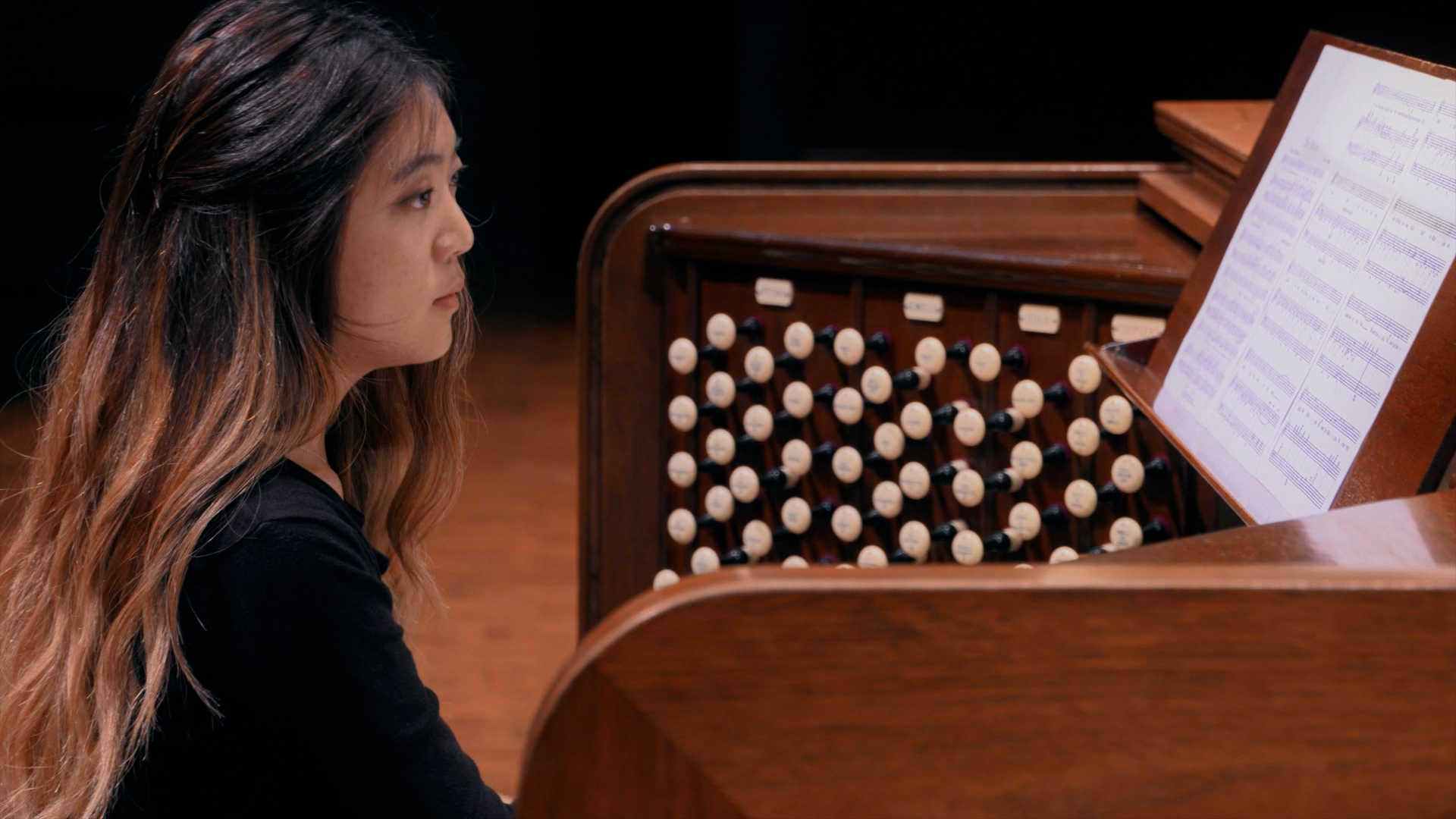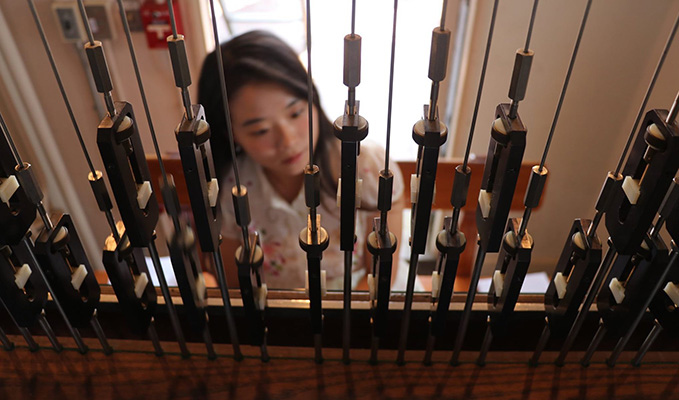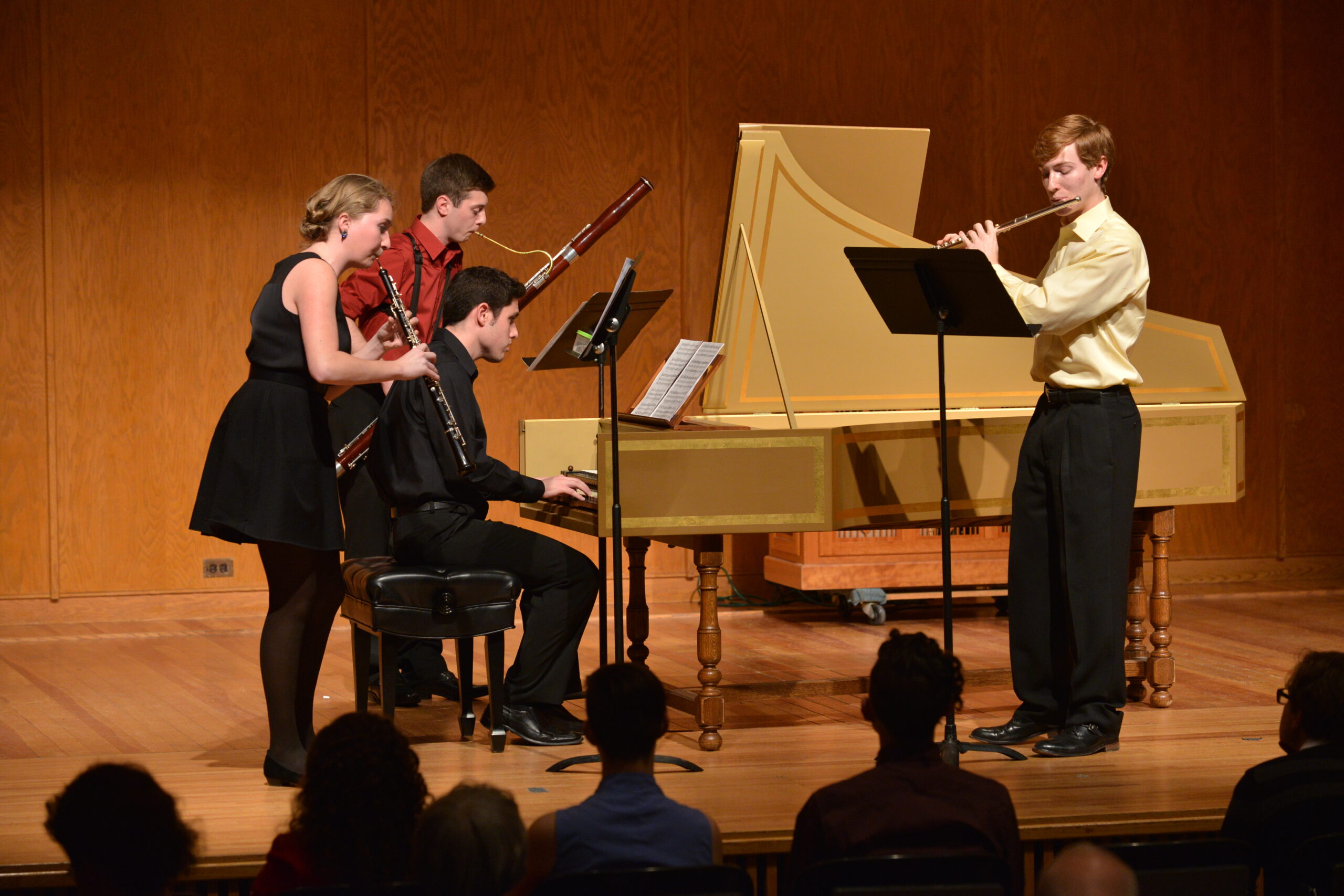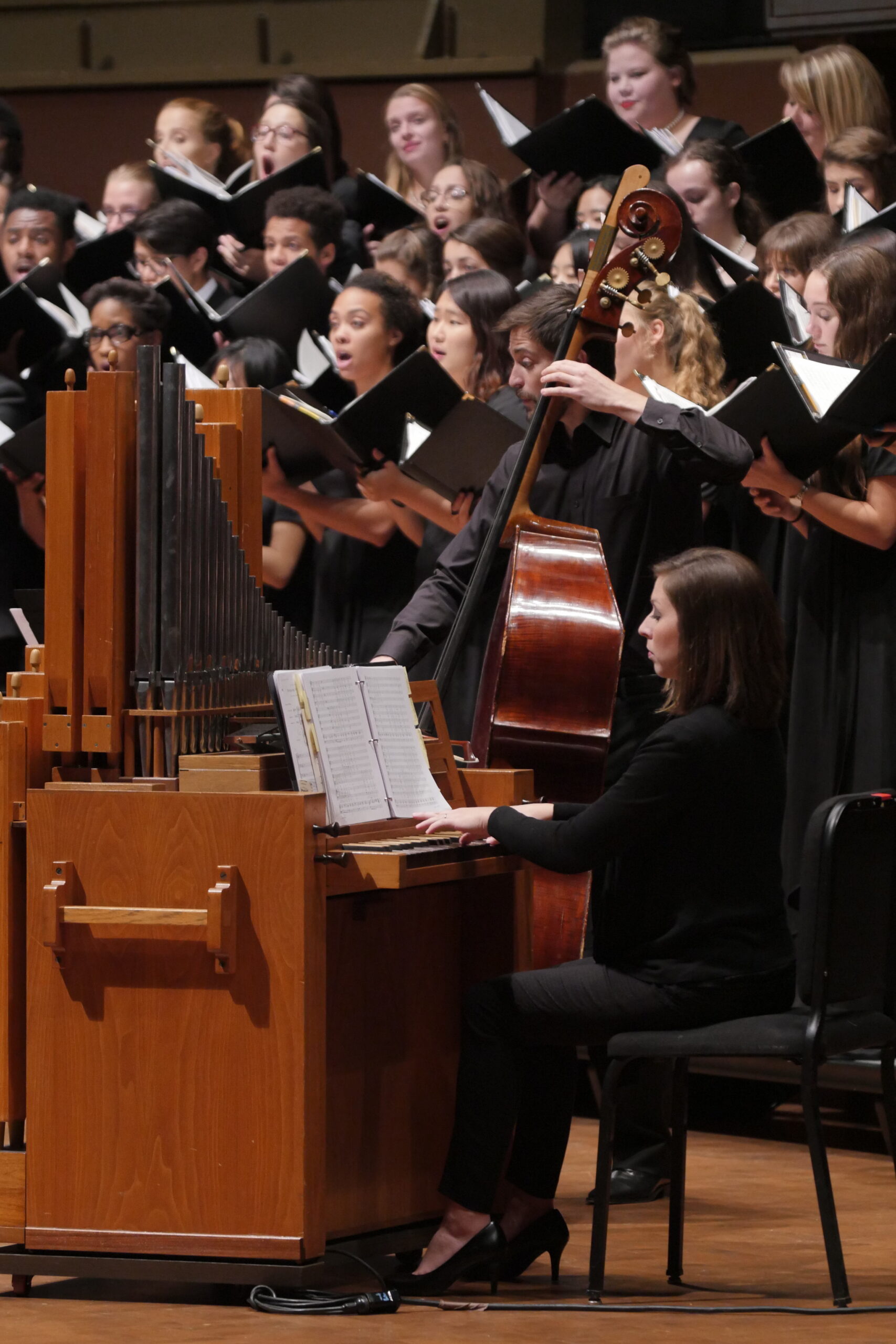Master of Arts in Media Arts
Application deadlines are specific to degree programs. See our Graduate Admissions page for a list of all deadlines.
The MA in Media Arts strives to develop artists and technologists committed to expanding the boundaries of artistic expression through digital media. This is a multi-disciplinary program integrating music, engineering, technology, and art.
Curriculum
The Master of Arts in Media Arts requires a minimum of 36 credits. Coursework to include:
Media Arts:
- Graduate Seminar in the History of Performing Arts Technology
- Research Methods in Performing Arts Technology
- Interdisciplinary Collaboration
Elective areas of study include:
- Interactive media design
- Music technology
- Interdisciplinary collaboration
- Music performance with electronics
- New interfaces for musical expression
- Sound and video art installation
- Acoustic and electro-acoustic music composition
- Sound engineering
- Software design for music and audio
- Psychoacoustics
- Sound for Film cognate courses
- Creative coding
- MOCAP interaction design
- Digital fabrication for acoustics
- Immersive media
- Dialogue of the senses
Final Project:
Thesis Candidates complete a comprehensive thesis that usually consists of two parts: a technology-enhanced performance of original work and a written thesis that documents the performance.
Silent Advisor
Degree requirements and term-by-term layout for current students.
Faculty
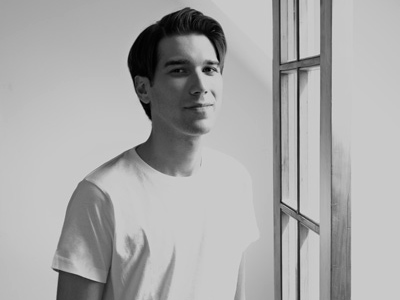
Anıl Çamcı
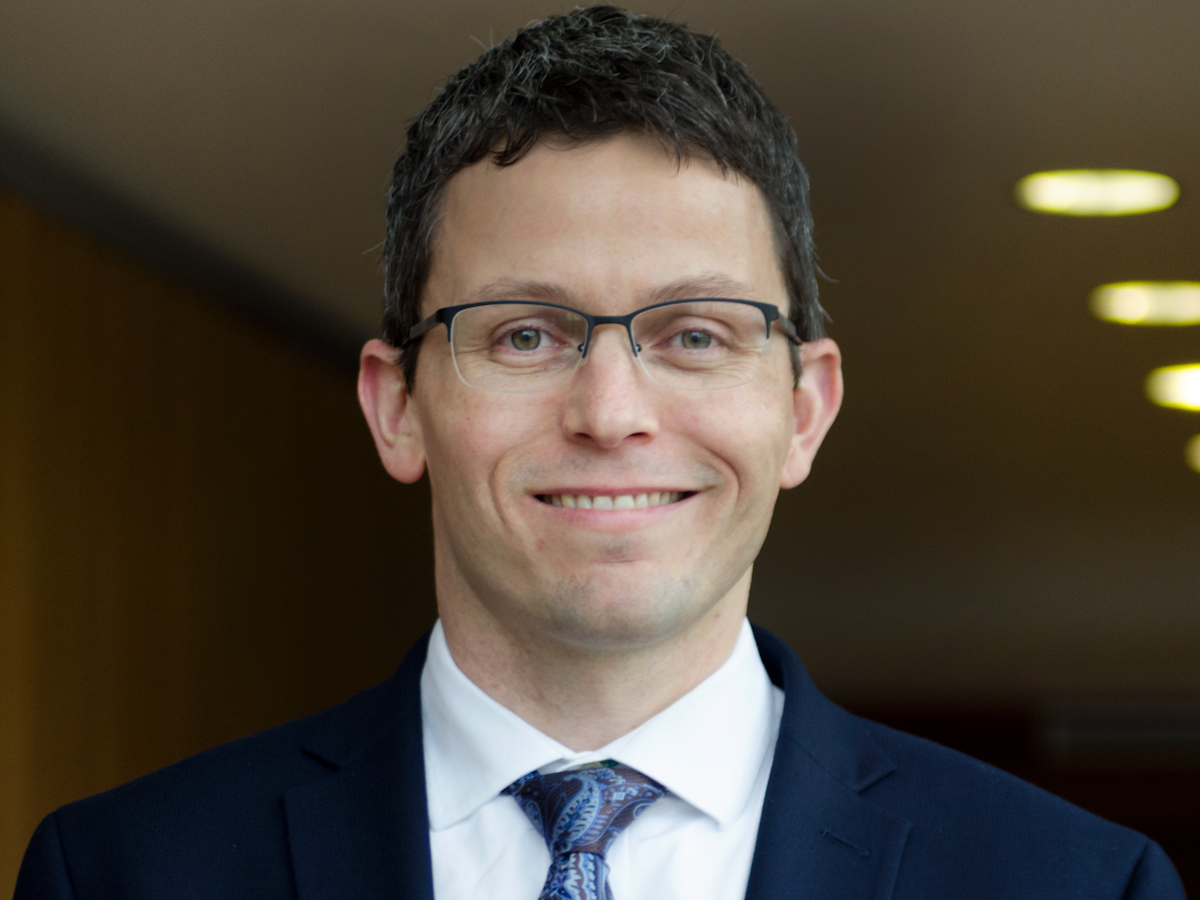
Jason Corey
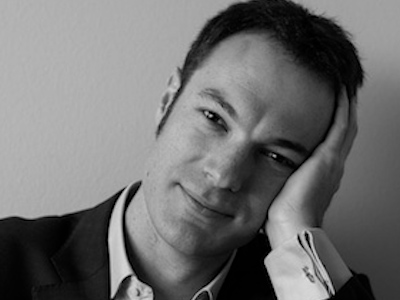
Paul Dooley
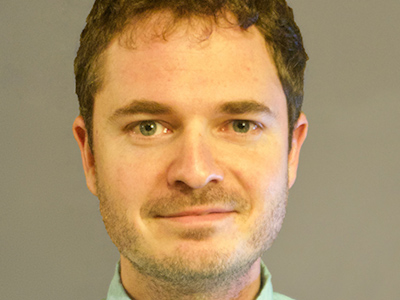
Jeremy Edwards
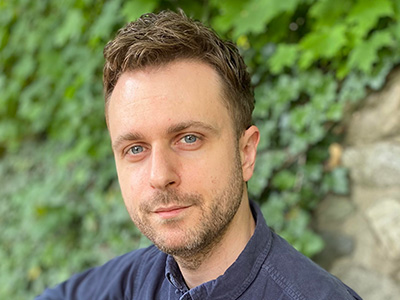
Jonathan Edwards
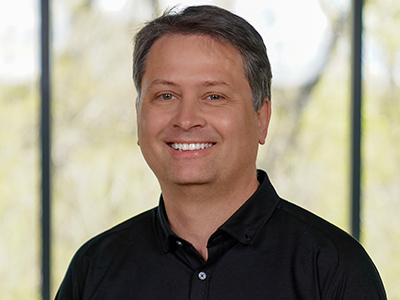
John Granzow
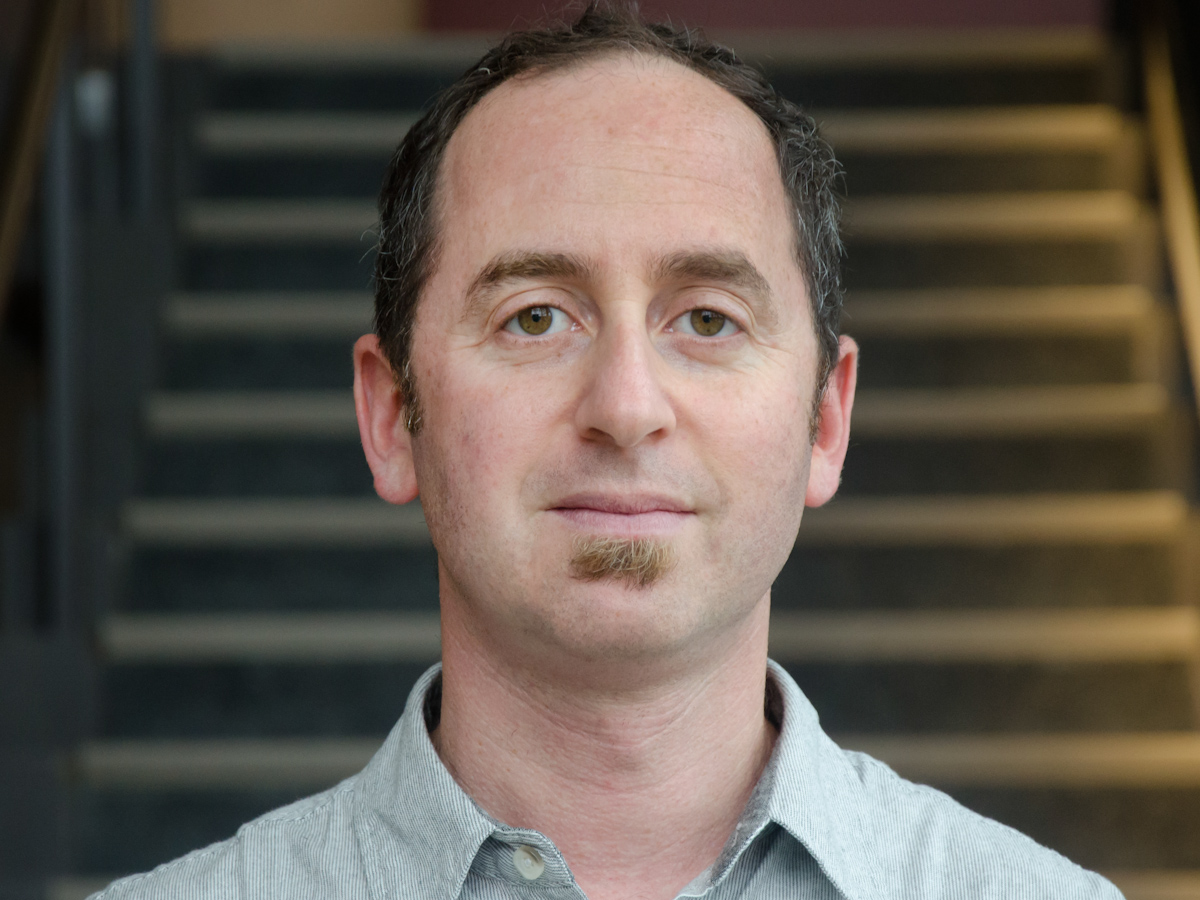
Michael Gurevich
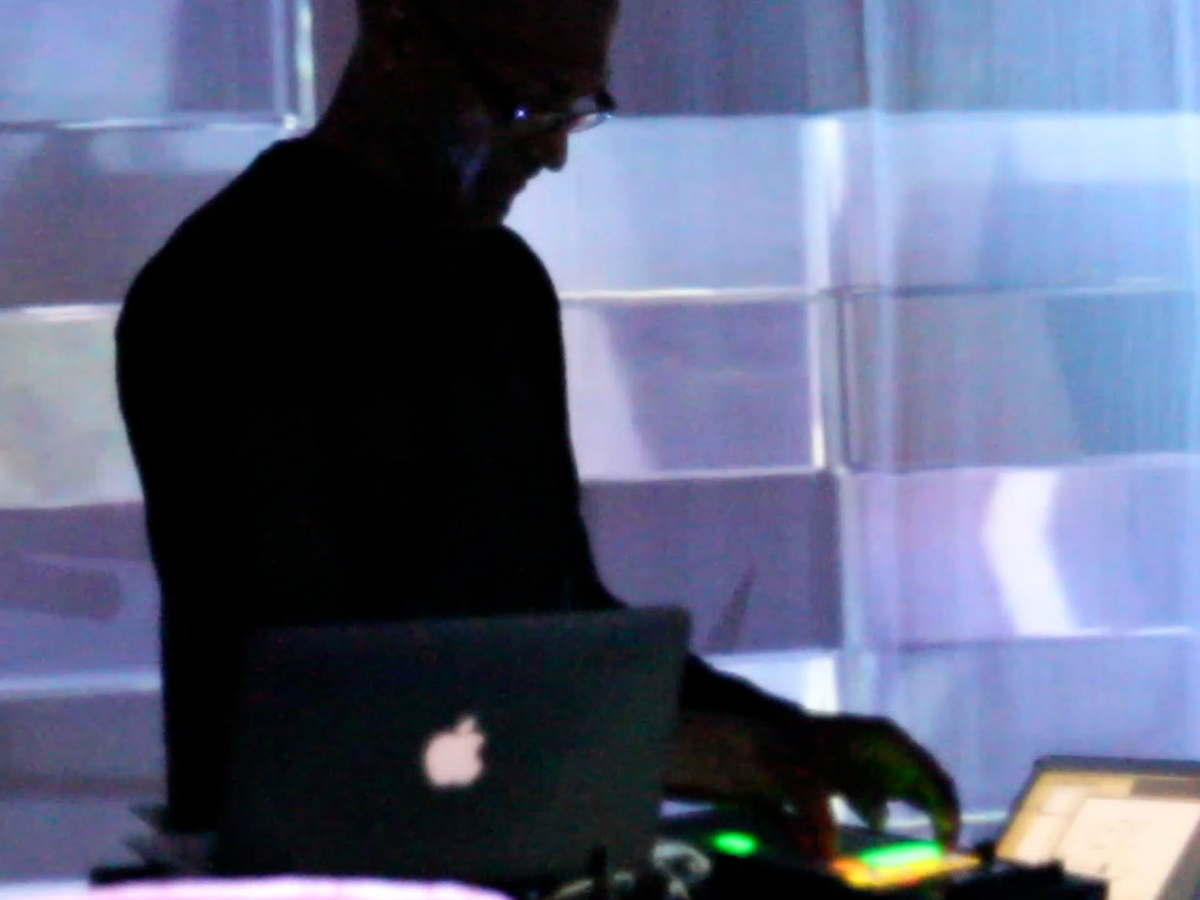
Alvin Hill
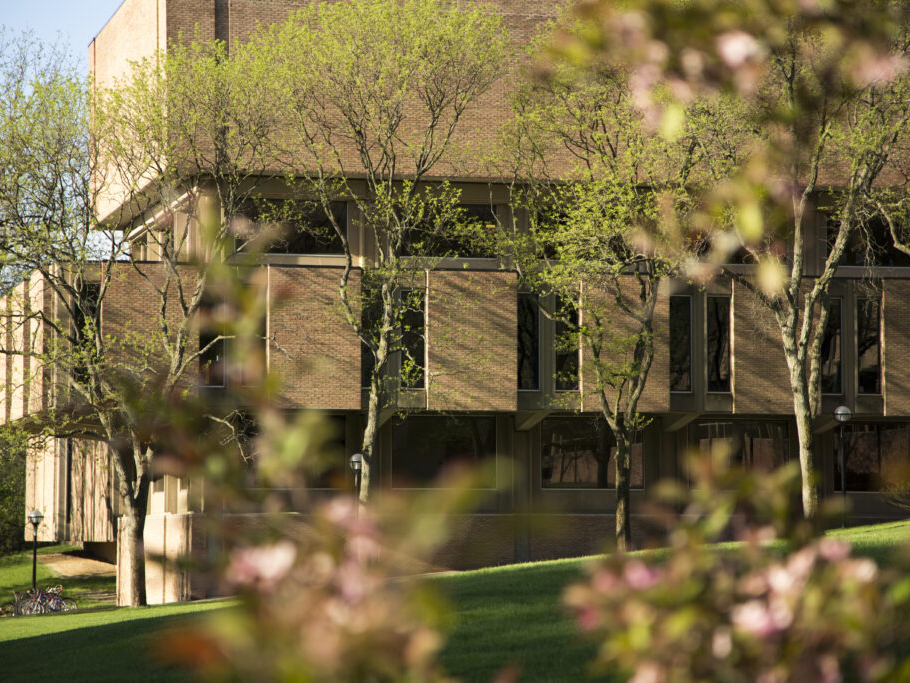
Sile O’Modhrain

Zeynep Özcan

Stephen Rush
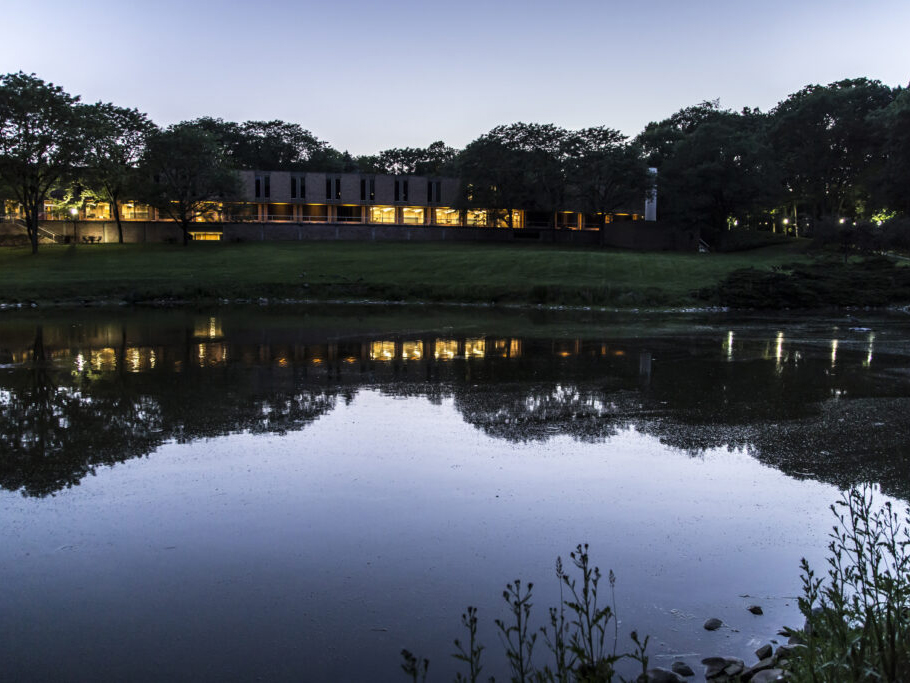
Eric Wojahn
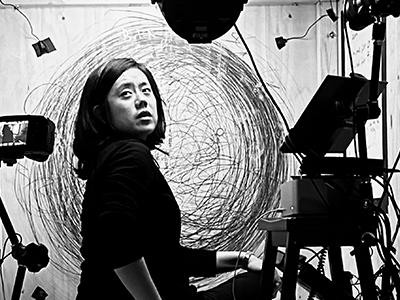
Julie Zhu
Brehm Technology Suite
Performance Opportunities
From large ensembles in celebrated concert halls to chamber groups in intimate recital spaces, performance opportunities across all disciplines abound, with nearly 900 student performances each academic year. Whether your focus is on early, classical, or contemporary music, whether your passion is for jazz, electronic, or world music, there is an ensemble—or in many cases, multiple ensembles—to suit your interests, including specific opportunities for percussion, piano, and organ & carillon. For students in theatre & drama, musical theatre, dance, and opera, opportunities abound in both professionally produced and student-run presentations.
Explore our Campus
Meet the people who make up this dynamic community.
Apply Now
Most applications for 2024-2025 are due by December 1 - check for exact dates on the appropriate admissions page below.
Program Costs, Financial Aid & Scholarships
Explore the many options available to make Michigan an affordable choice.

